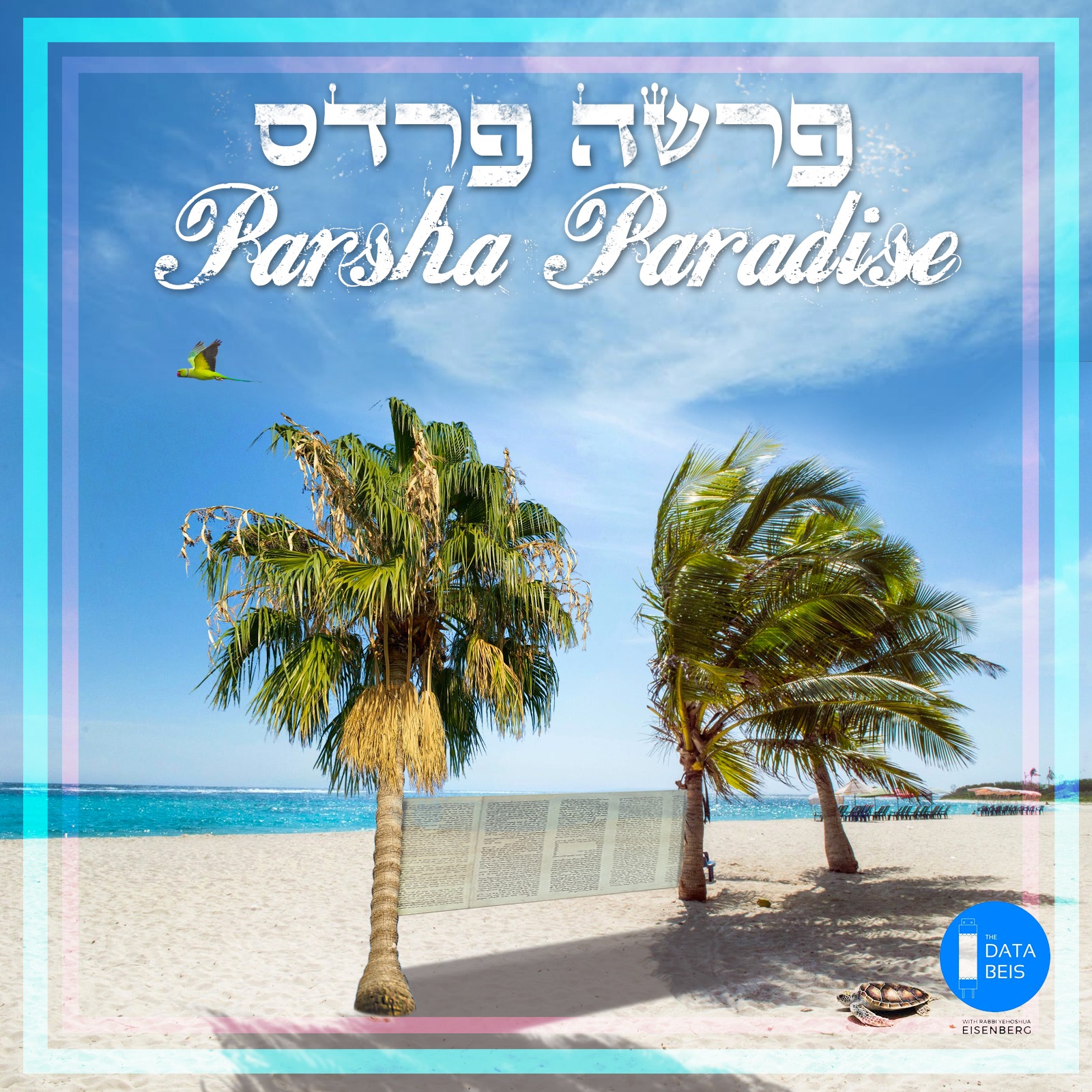This D’var Torah should be a Zechus L’Ilui Nishmas my sister, Kayla Rus Bas Bunim Tuvia A”H, my maternal grandfather Dovid Tzvi Ben Yosef Yochanan A”H, my maternal grandfather Dovid Tzvi Ben Yosef Yochanan A”H, my paternal grandfather Moshe Ben Yosef A”H, my uncle Reuven Nachum Ben Moshe & my great aunt Rivkah Sorah Bas Zev Yehuda HaKohein.
It should also be in Zechus L’Refuah Shileimah for:
-My father Bunim Tuvia Ben Channa Freidel
-My grandmothers Channah Freidel Bas Sarah, and Shulamis Bas Etta
-MY BROTHER: MENACHEM MENDEL SHLOMO BEN CHAYA ROCHEL
-Mordechai Shlomo Ben Sarah Tili
-Noam Shmuel Ben Simcha
-Chaya Rochel Ettel Bas Shulamis
-And all of the Cholei Yisrael, especially those suffering from COVID-19 and the Meiron tragedy.
-It should also be a Z’chus for an Aliyah of the holy Neshamos of Dovid Avraham Ben Chiya Kehas—R’ Dovid Winiarz ZT”L, Miriam Liba Bas Aharon—Rebbetzin Weiss A”H, as well as the Neshamos of those whose lives were taken by terrorists (Hashem Yikom Damam), COVID-19, and the Meiron tragedy.
-It should also be a Z’chus for success for Tzaha”l as well as the rest of Am Yisrael, in Eretz Yisrael and in the Galus.
בס”ד
Sponsored by:
• Anonymous
לע”נ שמואל מנחם בן אריה לייב
לע”נ לאה בת אברהם
לע”נ יהודה חסדא יקיר בן הרב שלמה
For the rest of my audio content, please visit me at The DataBeis:
Parsha Paradise/פרשה פרדס – Vayishlach: Why did the Angel Hit Yaakov in the Gid HaNasheh? ???
Audio:
https://jewishpodcasts.fm/thedatabeis/26435
P’shat:
Bechor Shor suggests simply that the angel targeted Yaakov’s Gid HaNasheh so that he would fall. Indeed, an attack to someone’s lower body would do that.
Parenthetically, Ibn Ezra points out that the altercation was a physical one and that the angel was present in a “body.” (This would seem to run contrary to the Rambam who understands the whole incident as a vision. Ramban vehemently disagrees with Rambam.)
Remez:
Ba’al HaTurim suggests a couple of reasons why the angel struck Yaakov’s Gid HaNasheh, the second of which, he suggests by way of Remez.
He explains that the phrase, “B’Kaf Yereicho”-“In the socket of his hip” is equal in numerical value to the words, “L’Faslo MiKehunah”-“to disqualify him from Priesthood.” Indeed, with the firstborn rights which Yaakov had won from Eisav, he was then entitled to Priesthood, and if the angel had caused Yaakov to become laim, that would have physically disqualified him from Priesthood.
Drash:
Interestingly, Ba’al HaTurim’s first suggestion is uncharacteristically not made by way of Remez, but seemingly by way of Drash. He explains that the angel struck Yaakov in the lower body to determine if Yaakov was an angel or not, as an angel has no leg joints.
(What that might mean, we discussed here:
The idea is that by holding his own in a fight against an angel, the angel was in doubt as to whether Yaakov was even human.)
Alternatively, Bereishis Rabbah [77:3] explains that the angel’s attack on the thigh of Yaakov actually represents an attack on his future offspring (indeed, one’s offspring is often referred to in Scripture as “emerging from one’s thigh”). Similarly, the Midrash Lekach Tov [32:26] identifies the “Kaf Yerech” (lit., “socket of the hip”) as a reference to Yaakov’s Milah (location of circumcision, referred to as “Tachas HaYerech” in Scripture), the area of reproduction. (This is why, explains the Lekach Tov, future enemy nations would try to decree bans against Bris Milah, i.e. Greeks, Romans.)
Sod:
As evidenced plainly in the narrative, the wrestling bout between Yaakov and the Saro Shel Eisav is the historical origin for the prohibition against consuming Gid HaNasheh.
In this vain (no pun intended), Zohar [Vayishlach, 170B] reveals that every one of the 365 transgressions of the Torah corresponds to one of the 365 days on the solar calendar year, and that the Issur of eating Gid HaNasheh corresponds to Tish’ah B’Av. Apparently, this prohibition represents the battle of Galus which we mourn every Tish’ah B’Av. In the same light, the Sefer HaChinuch [Mitzvah #3] explains that the entire prohibition of consuming Gid HaNasheh is a reminder of our ongoing battle with Eisav.
Surely, the striking of the Gid HaNasheh must be understood as more than a basic battle tactic; it is perhaps an attack against our status of Kedushah, a perpetual attack against us and our offspring, and likely all of the above. But, through the Issur of Gid HaNasheh and our guarding of Kedushas Bris, we will be triumphant in that battle. And in Zechus of our Mesiras Nefesh, Hashem will protecting us and our children against our antagonists in Galus and deliver our Geulah, Bimheirah BiYomeinu! Have a Great Shabbos!
-Yehoshua Shmuel Eisenberg

